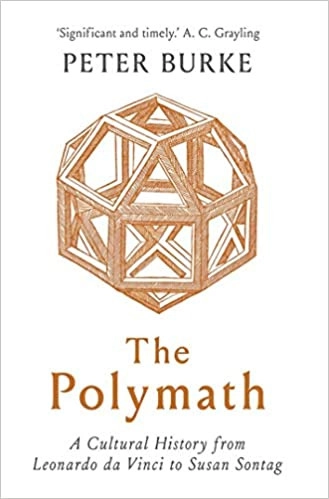Reading Time
7 hrs 19 mins
How long to read The Polymath: A Cultural History from Leonardo da Vinci to Susan Sontag?
The estimated word count of The Polymath: A Cultural History from Leonardo da Vinci to Susan Sontag is 109,740 words.
A person reading at the average speed of 250 words/min, will finish the book in 7 hrs 19 mins. At a slower speed of 150 words/min, they will finish it in 12 hrs 12 mins. At a faster speed of 450 words/min, they will finish it in 4 hrs 4 mins.
| The Polymath: A Cultural History from Leonardo da Vinci to Susan Sontag - 109,740 words | ||
|---|---|---|
| Reading Speed | Time to Read | |
| Slow | 150 words/min | 12 hrs 12 mins |
| Average | 250 words/min | 7 hrs 19 mins |
| Fast | 450 words/min | 4 hrs 4 mins |
- Authors
-
Peter Burke
More about The Polymath: A Cultural History from Leonardo da Vinci to Susan Sontag
109,740 words
Word Count
for The Polymath: A Cultural History from Leonardo da Vinci to Susan Sontag
352 pages
Pages
11 hours and 48 minutes
Audiobook length
Description
The first history of the western polymath, from the fifteenth century to the present day From Leonardo Da Vinci to John Dee and Comenius, from George Eliot to Oliver Sacks and Susan Sontag, polymaths have moved the frontiers of knowledge in countless ways. But history can be unkind to scholars with such encyclopaedic interests. All too often these individuals are remembered for just one part of their valuable achievements. In this engaging, erudite account, renowned cultural historian Peter Burke argues for a more rounded view. Identifying 500 western polymaths, Burke explores their wide-ranging successes and shows how their rise matched a rapid growth of knowledge in the age of the invention of printing, the discovery of the New World and the Scientific Revolution. It is only more recently that the further acceleration of knowledge has led to increased specialisation and to an environment that is less supportive of wide-ranging scholars and scientists. Spanning the Renaissance to the present day, Burke changes our understanding of this remarkable intellectual species.
